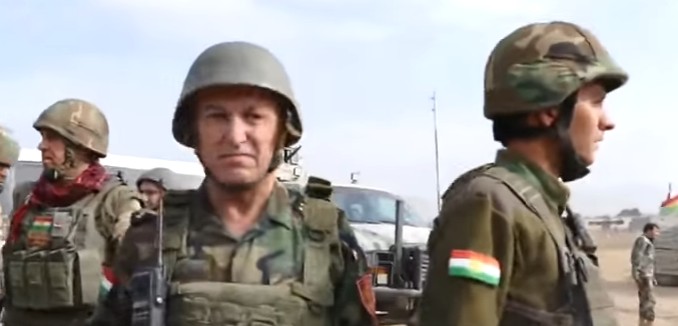In the wake of the successful Iraqi fight to liberate the city of Mosul from ISIS, the world should thank the Kurds for the vital role they played by supporting their quest for independence, French philosopher Bernard-Henri Lévy wrote Wednesday in Tablet Magazine.
“It was the Kurdish peshmerga that, in October and November 2016, opened Mosul’s gates for the Iraqis,” Lévy observed. “It is they who, for two long years, held fast (as England alone resisted the Nazis until well into 1941) while the Iraqi army recovered from the rout of August 2014; it is they who held a front line 1,000 kilometers long before ultimately repelling the Islamic State. Fighters, they were, from the very start, sentinels of a free world that everywhere else was buckling under the Islamist surge.”
Lévy noted that on September 25, the residents of Iraqi Kurdistan will vote in a referendum on independence. The world will have two choices, in response:
• To throw up a great hue and cry, as Ankara, Teheran, and Moscow have already done, to urge this erstwhile ally, no longer needed, to be a good little ally and to cool its heels: Let’s not add chaos to chaos, goes the argument; let’s not pour more powder into the powder keg of the area; no one needs a new state to further inflame a Middle East that is already complicated enough.
• Or to heed the opposing voices contending that Iraq is the factitious state, a state born from the convulsions of World War I, a colonial artifact. And to bring stability to the region nothing could be better, the counterargument continues, than to recognize a nation already endowed with solid democratic institutions, a culture of respect for non-Kurdish minorities and for women, a taste for secularism, a concern for good governance, and a sincere tilt toward the West.
For Lévy, the way forward is clear. “Far from destabilizing the region, the emergence of a free Kurdistan would be a potent force for stability and peace. The conclusion of the battle of Mosul challenges us all to make this heartfelt choice for justice and reason,” he concluded.
In assessing Kurdish aspirations for statehood, Joe Roberts, chief advancement officer of The Israel Project (which publishes The Tower), noted their similarities with Jewish aspirations for national self-determination.
“When more than 800,000 Jews were expelled from Arab countries in the 1950s, we had somewhere to welcome them. In Israel, we had a place for them to live and thrive. This includes Kurdish Jews, of whom 125,000 call Israel home today,” Roberts wrote. “For their non-Jewish Kurdish brothers, however, it wasn’t so easy. The hangman came for them again, and this time the price was heavy. When Saddam Hussein’s government came for them, they had nowhere to go. Through a crescendo of violence and oppression, the governments of Iraq, Iran, Turkey and Syria put in place laws that restricted the Kurdish language, culture and freedom of religious expression.”
For the Kurds, the threat of the hangman remains real, and “only self-determination and self-rule can cut his rope.”
Prime Minister Benjamin Netanyahu voiced his support for Kurdish independence in 2014, shortly after former Israeli President Shimon Peres advised President Barack Obama to recognize the reality of Kurdish separation from the rest of Iraq.
The Jewish state played a role in helping establish the modern Kurdish army in the 1960s, and Sherzad Omer Mamsani, the Kurdish Regional Government’s first director of Jewish affairs, told The Tower in May that Kurds “have really a soft heart towards Israel.”
Middle East analyst Jonathan Spyer argued in the September 2013 issue of The Tower Magazine that “it has become overwhelmingly clear to me that Kurdish sovereignty would be of benefit to the Kurds, the region as a whole, and Western interests in the Middle East.”
[Photo: Ayoub Kurdish / YouTube ]




